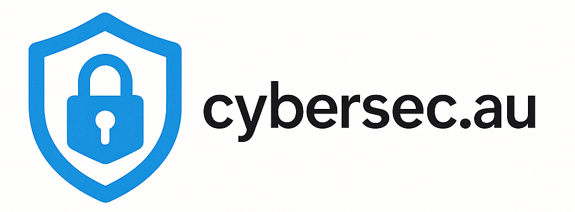Australia faces a cybersecurity talent crisis of unprecedented scale: over 18,000 unfilled cybersecurity positions and growing. For business leaders, this isn't just an HR challenge—it's a strategic imperative that requires innovative thinking, creative partnerships, and fundamental changes to how we build cybersecurity capabilities.
📊 The Talent Crisis by Numbers
Why Traditional Hiring Approaches Fail
Most organizations approach cybersecurity hiring like any other technical role. This fundamental misunderstanding of the cybersecurity talent market leads to prolonged vacancies, inflated salaries, and ultimately, inadequate security capabilities.
The Talent Market Reality
- Supply-demand imbalance: 3-4 open positions for every qualified candidate
- Experience premium: Senior professionals command 40-60% salary premiums
- Retention challenges: Average tenure of 2.5 years in cybersecurity roles
- Geographic concentration: Talent concentrated in Sydney and Melbourne
The Skills Evolution Challenge
Cybersecurity skills requirements are evolving faster than traditional education can adapt:
- Cloud security: Traditional network security skills don't translate directly
- AI and machine learning: New skills needed for AI-powered security tools
- DevSecOps: Integration of security with development practices
- Business acumen: Technical skills must be paired with business understanding
Strategic Talent Solutions
Solution 1: Build vs Buy Strategy
Develop internal talent rather than competing for scarce external resources:
- Internal mobility programs: Transition IT professionals into cybersecurity
- Apprenticeship programs: Partner with universities and training providers
- Cross-training initiatives: Develop security skills across the organization
- Mentorship programs: Pair junior staff with experienced professionals
🎓 Building Your Talent Pipeline
Entry Level
Graduate programs and career changers
- University partnerships
- Bootcamp graduates
- Career transition programs
Development
Skill building and specialization
- Certification programs
- Hands-on training
- Project-based learning
Specialization
Advanced skills and leadership
- Technical specialization
- Leadership development
- Strategic thinking skills
Solution 2: Strategic Partnerships
Leverage external expertise to supplement internal capabilities:
- Managed security services: Partner with cybersecurity MSPs for 24/7 capabilities
- Fractional executives: Part-time CISO and security leadership
- Consulting partnerships: On-demand access to specialized expertise
- Technology partnerships: Vendor-provided security expertise and support
Solution 3: Automation and Technology
Use technology to multiply human capabilities:
- Security automation: Automate routine security tasks
- AI-powered tools: Augment human analysis with machine intelligence
- Orchestration platforms: Streamline security operations workflows
- Self-service security: Enable non-security staff to perform basic security tasks
Innovative Talent Acquisition Strategies
Non-Traditional Talent Sources
Look beyond traditional cybersecurity backgrounds:
- Military veterans: Strong security mindset and discipline
- Law enforcement: Investigation and forensics experience
- Audit professionals: Risk assessment and compliance expertise
- Software developers: Technical skills transferable to security
Skills-Based Hiring
Focus on capabilities rather than credentials:
- Practical assessments: Hands-on security challenges
- Problem-solving focus: Analytical thinking over specific tool knowledge
- Learning agility: Ability to adapt to new technologies
- Business acumen: Understanding of business context and priorities
Retention and Development
Keep your cybersecurity talent engaged and growing:
- Career progression: Clear paths for advancement
- Continuous learning: Training budgets and conference attendance
- Challenging projects: Exposure to cutting-edge security challenges
- Recognition programs: Acknowledge security achievements and contributions
The Economics of Talent Decisions
Cost-Benefit Analysis: Internal vs External
Internal Team
Annual Cost: $800K - $2M
- Senior CISO: $200K - $300K
- Security analysts (2-3): $300K - $450K
- Security engineer: $150K - $200K
- Training and tools: $150K - $250K
Benefits: Full control, deep business knowledge, dedicated focus
Risks: Recruitment challenges, retention issues, skills gaps
Managed Services
Annual Cost: $300K - $800K
- 24/7 SOC services: $200K - $500K
- Incident response: $50K - $150K
- Strategic consulting: $50K - $150K
Benefits: Immediate expertise, 24/7 coverage, cost predictability
Risks: Less control, potential vendor dependency
Hybrid Approach: The Optimal Solution
Most successful organizations combine internal and external capabilities:
- Internal leadership: CISO or security manager for strategy and governance
- External operations: Managed services for 24/7 monitoring and response
- Specialized consulting: On-demand expertise for complex projects
- Technology partnerships: Vendor support for security tools and platforms
Building Cybersecurity Culture
Security as Everyone's Responsibility
Distribute cybersecurity responsibilities across the organization:
- Security champions: Designate security advocates in each department
- Cross-functional training: Basic security skills for all employees
- Incident response teams: Multi-disciplinary response capabilities
- Security metrics: Include security KPIs in all role evaluations
Creating Attractive Cybersecurity Careers
Make your organization a destination for cybersecurity talent:
- Meaningful work: Connect security work to business outcomes
- Growth opportunities: Clear career progression and skill development
- Work-life balance: Sustainable on-call and incident response practices
- Recognition and rewards: Competitive compensation and acknowledgment
Working with Talent Partners
Many Australian organizations are partnering with cybersecurity specialists to address talent challenges. Leading providers like Affinity MSP offer talent solutions including:
- Fractional CISO and security leadership services
- Managed security operations and 24/7 monitoring
- Security training and capability development
- Incident response and specialized expertise
- Strategic security planning and governance
The Future of Cybersecurity Talent
The cybersecurity talent crisis won't be solved by traditional approaches. Organizations that thrive will be those that reimagine how cybersecurity work gets done, who does it, and how it integrates with broader business operations.
The future belongs to organizations that view the talent crisis not as a constraint, but as an opportunity to build more resilient, efficient, and effective cybersecurity capabilities.
Solve Your Cybersecurity Talent Challenge
Don't let the talent crisis compromise your security posture. Get strategic guidance on building cybersecurity capabilities through innovative talent strategies.
Explore Talent Solutions